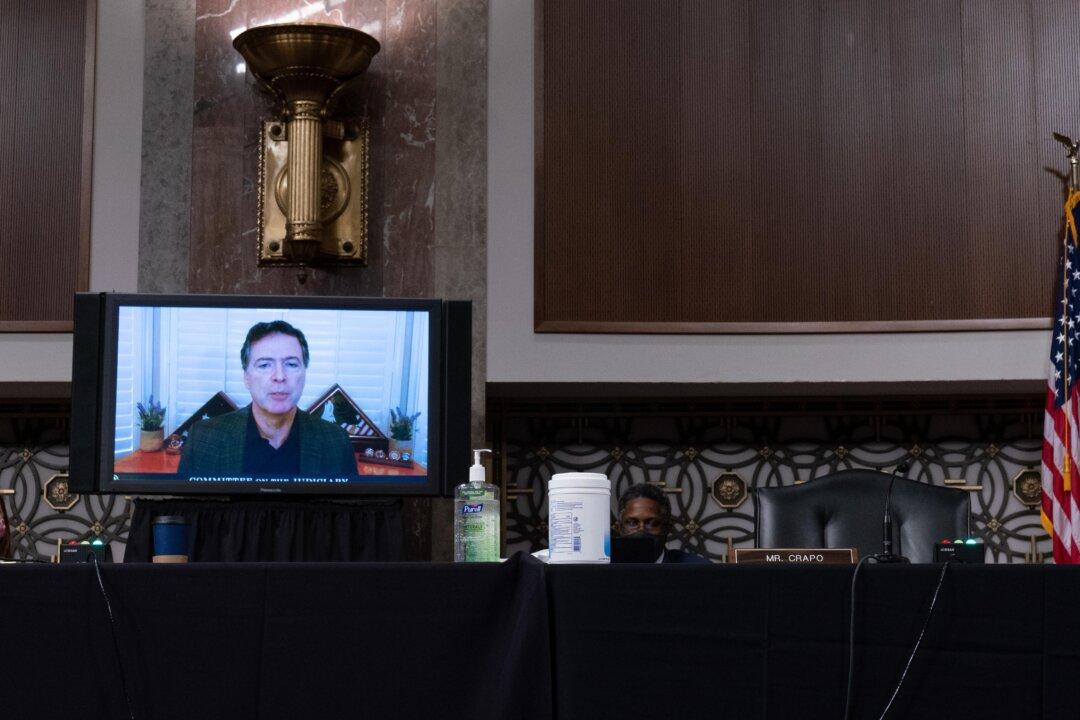The head of the U.S. intelligence community on Oct. 6 declassified a referral sent from the CIA to FBI Director James Comey in 2016, which Comey last week claimed to have no memory of receiving.
The three-page referral, released by Director of National Intelligence John Ratcliffe to members of Congress in partly redacted form, apprised Comey and FBI Deputy Assistant Director Peter Strzok that intelligence suggested that Democratic presidential nominee Hillary Clinton had approved a plan concerning the Trump campaign and Russia’s alleged hack of the Democratic National Committee.





